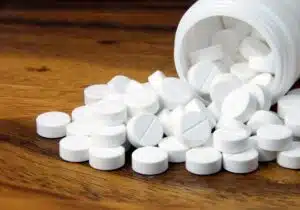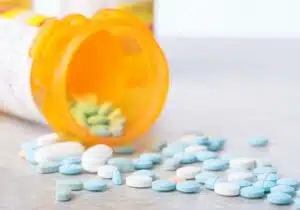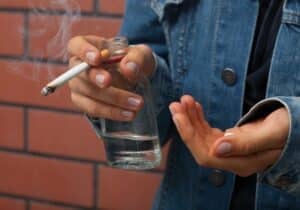Table of Contents
What is Bipolar Disorder?
Bipolar disorder, previously recognized as manic depression, is a mental health condition marked by mood shifts from extreme highs (mania) to profound lows (depression). Recent data suggests that about 2.6% of the American adult population, or over 5.7 million people, suffer from bipolar disorder. A significant 82.9% of these individuals reported substantial impairment due to their condition in the past year, highlighting the most severe impairment rate among mood disorders.
Given these statistics, it’s evident that bipolar disorder greatly impacts everyday life. While its symptoms can differ considerably among patients, the urgency for medical intervention remains universal. Left untreated, bipolar disorder can result in dire consequences, including a reduced life expectancy by approximately ten years. These individuals also face a significantly higher suicide risk.
However, there’s a silver lining. With consistent bipolar treatment and the right therapeutic strategies, many experience prolonged symptom-free periods. The path to recovery might differ among patients, and some might face recurrent episodes despite treatment.
Bipolar Disorder and Substance Abuse: A Dangerous Liaison
Studies have consistently shown a strong correlation between bipolar disorder and substance abuse. Roughly 60% of those diagnosed with bipolar disorder have admitted to some history of substance misuse. While the precise reason remains debatable, it’s hypothesized that individuals with bipolar disorder may resort to drugs and alcohol as coping mechanisms, although this generally worsens bipolar symptoms.
The Journal of Clinical Psychiatry reveals that up to 70% of people diagnosed with bipolar disorder have experienced substance abuse issues. This dual diagnosis – merging bipolar disorder with substance use disorder (SUD) – complicates the treatment landscape. Substance abuse can exacerbate bipolar symptoms, extending episodes of emotional instability, increasing suicide attempts, and degrading life quality.
Therefore, an integrated treatment approach that addresses both bipolar symptoms and addiction simultaneously is crucial. Such a methodology ensures that healthcare practitioners are equipped to tackle the intricacies of both conditions. If you or someone close to you is facing challenges with bipolar disorder and/or addiction, take the first step towards healing. Call Iris Wellness Group at 423-564-6114 and start your bipolar treatment in Tennessee today.
Types and Causes of Bipolar Disorder
Bipolar disorder is categorized into two primary types. Individuals with bipolar disorder I exhibit intense manic episodes, while those diagnosed with bipolar disorder II manifest less severe manic episodes. Genetic predisposition plays a role in bipolar disorder, as it frequently appears within family lineages, suggesting that specific genes might elevate susceptibility. Typically, the disorder is identified before one turns 25, although it’s not uncommon for some to notice symptoms later in their life.
Additionally, attention deficit hyperactivity disorder (ADHD) often coexists with bipolar disorder, generally appearing before the onset of the bipolar symptoms. There are also instances where individuals with bipolar disorder concurrently suffer from anxiety disorders.
Differentiating between depressive episodes stemming from unipolar depression and those associated with bipolar disorder can be challenging. Precise diagnosis is imperative, as medications that alleviate unipolar depression symptoms might inadvertently induce manic episodes in individuals with bipolar disorder.
In the diagnostic process, physicians conduct a physical examination, inquire about the patient’s symptoms, and recommend blood tests to discern if conditions like hypothyroidism might be the root cause of the manifested symptoms. If no external factors are identified, a comprehensive psychological assessment follows.
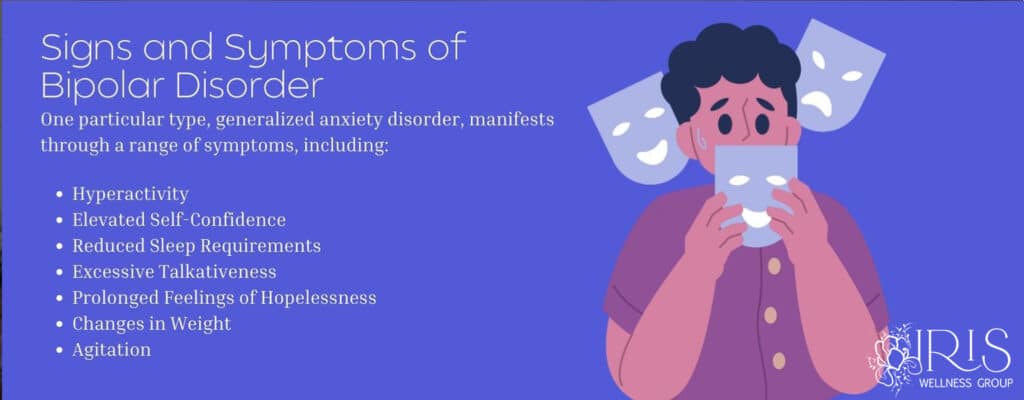
Identifying the Signs and Symptoms of Bipolar Disorder
Bipolar disorder manifests differently in everyone. Symptoms during manic and depressive episodes can vary, and those with co-existing addiction might experience intensified symptoms.
Manic episodes might involve:
- Hyperactivity
- Elevated self-confidence
- Reduced sleep requirements
- Excessive talkativeness
- Rapid, scattered thoughts
- Short attention spans
- High-risk behaviors
- Obsession with specific objectives
Conversely, depressive episodes can entail:
- Prolonged feelings of hopelessness
- Overwhelming feelings of worthlessness
- Changes in weight
- Agitation
- Irregular sleep patterns
- Loss of interest in previously enjoyable activities
- Constant fatigue
- Intense guilt
- Difficulty concentrating
- Suicidal ideation
It’s crucial to note that these episodes are not necessarily linked to substance abuse, making diagnosis in the presence of addiction challenging. If you or a loved one is grappling with bipolar disorder and/or addiction in Chattanooga, TN and the nearby regions, don’t wait. Reach out to Iris Wellness Group at 423-564-6114 and embark on your journey to effective bipolar disorder treatment today.
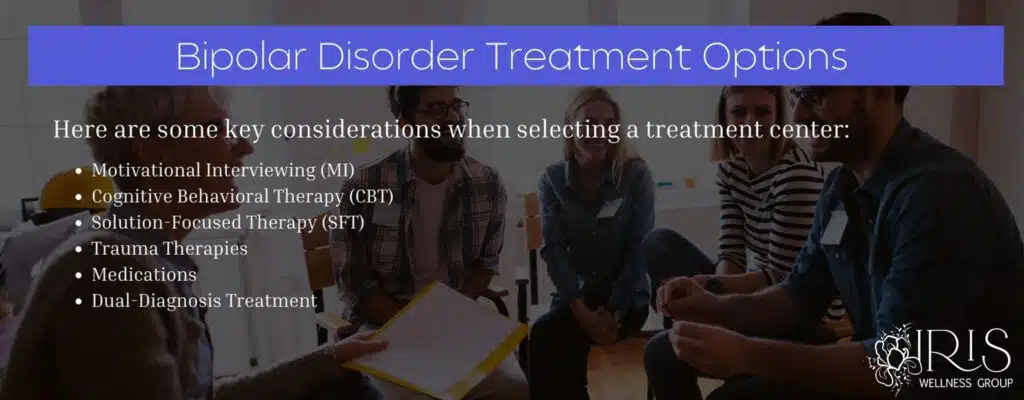
Bipolar Disorder Treatment and Coexisting Substance Use
Bipolar disorder is a multifaceted mental health issue, and its complexity intensifies when accompanied by substance use disorders. Effective bipolar disorder treatment should harness an array of modalities and disciplines, addressing the patient’s neurological, psychological, physical, and psychosocial challenges. Beyond the conventional individual therapy, those diagnosed with both bipolar disorder and addiction might benefit from these evidence-based techniques:
- Motivational Interviewing (MI): A cooperative strategy where the therapist and the client join forces. MI facilitates the identification of motivation sources, aiding those recovering from addiction’s after-effects. Crucially, studies, like one in Issues in Mental Health Nursing, suggest MI can be instrumental for those undergoing bipolar disorder treatment, particularly in reconciling their feelings towards psychiatric medications.
- Cognitive Behavioral Therapy (CBT): Central to bipolar treatment, CBT works on rectifying ingrained negative thoughts and behaviors that might lead to addiction, depression, or anxiety. Through this approach, patients discern harmful thought patterns, steering them towards healthier coping mechanisms.
- Solution-Focused Therapy (SFT): An outcome-driven approach, SFT empowers individuals with bipolar disorder and addiction to crystallize and pursue definite goals, emphasizing tangible therapy results rather than the deep-seated causes of their conditions.
- Trauma Therapies: Past traumatic experiences can exacerbate bipolar symptoms. Therapies like Seeking Safety and EMDR address unprocessed memories and latent fears, potentially reducing resultant anxiety or depression.
A significant portion of individuals with bipolar disorder find solace in medication therapy, which can be pivotal in symptom management. Precise mood stabilization and energy balance can dissuade the urge to resort to alcohol or drugs. However, medication selection necessitates meticulous attention. For instance, while some antidepressants effectively combat major depression, they may fall short in bipolar depression treatment and might even catalyze manic episodes. Widely-used bipolar disorder medications include:
- Mood Stabilizers: Lithium stands out as a prominent mood balancer for bipolar disorder treatment, offering protection against intense manic episodes and often administered alongside other drugs.
- Anticonvulsant Drugs: Medicines like divalproex (Depakote), lamotrigine (Lamictal), and carbamazepine (Tegretol) are pivotal in bipolar treatment, especially in curtailing depressive episodes.
- Antipsychotic Medications: Drugs such as quetiapine (Seroquel) and olanzapine (Zyprexa) are frequently prescribed to neutralize manic phases’ distinctive thought patterns and mood swings.
- Supplementary Medications: Apart from psychiatric drugs, bipolar treatment might entail medications addressing the physical manifestations linked to bipolar symptoms, including certain CNS-inhibiting blood pressure medications and those targeting hormonal imbalances.
Comprehensive care for dual diagnosis patients necessitates simultaneous substance abuse treatment within a unified program.
Modern treatment perspectives prioritize integrated care, diverging from traditional views that segregated mental health and substance abuse treatments. Contemporary programs seamlessly blend bipolar disorder treatment with addiction care. These encompass:
- Medical detox (inpatient or outpatient)
- Inpatient treatment
- Residential care
- Partial hospitalization
- Outpatient bipolar treatment
- Intensive Outpatient bipolar treatment
- Adolescent Intensive Outpatient bipolar treatment
For many at the onset of rehabilitation, the controlled environment of inpatient or residential programs proves invaluable. As they lay a recovery groundwork, they often transition to outpatient care, offering them increased autonomy and adaptability.
Bipolar Disorder Treatment in Adolescents:
Treatment approaches for adolescents with bipolar disorder are tailored individually, based on distinct symptoms, potential side effects of medications, and other unique factors. The treatment often involves:
- Medications: Adolescents with bipolar disorder might be prescribed medications akin to those utilized for adults. Given that there’s comparatively less research on the safety and efficacy of these medications specifically for adolescents, decisions about treatment often draw from findings in adult studies.
- Psychotherapy: Both initial and ongoing therapy play a pivotal role in mitigating the recurrence of symptoms. Psychotherapy assists adolescents in structuring their routines, honing coping mechanisms, navigating academic challenges, resolving interpersonal issues, and bolstering familial ties and communication. Significantly, for those adolescents grappling with substance abuse – an issue that is not uncommon in this age group, especially when paired with bipolar disorder – psychotherapy provides indispensable support and intervention.
- Psychoeducation: This facet of treatment involves imparting knowledge about the symptoms of bipolar disorder, elucidating how they might be distinct from typical adolescent behavior or culturally expected responses. A comprehensive understanding of bipolar disorder equips families and adolescents themselves to better navigate and manage the condition.
- Intensive Outpatient Programs (IOP) for Bipolar Disorder and/or Addiction: Adolescent IOPs are designed to offer specialized therapy sessions more frequently than traditional outpatient services, without the need for full hospitalization. This allows the teenager to receive intensive treatment while still participating in their daily life activities. These programs are particularly beneficial for those struggling concurrently with substance abuse, as they provide a robust structure and support network to address both addiction and bipolar disorder.
- Support: Collaboration with educational professionals, like school counselors, is pivotal. Additionally, fostering a support system comprising family and friends can be instrumental in identifying beneficial services and promoting overall well-being and success for the adolescent.
Start Your Bipolar Disorder Treatment Journey Now.
Bipolar Disorder Treatment in Chattanooga, Tennessee
Iris Wellness Group offers specialized care for bipolar treatment in Chattanooga, TN, underscoring their dedication to mental health and holistic well-being. The increasing prevalence of bipolar disorder has pushed the city to ensure that its residents receive the necessary care and support. If you’re in Chattanooga or surrounding areas in Tennessee, rest assured that there are comprehensive resources available to help and call us today at 423-564-6114.
Bipolar Disorder Frequently Asked Questions
Am I Bipolar?
Determining if you are bipolar requires a professional diagnosis. Bipolar disorder is characterized by extreme mood swings, including emotional highs (mania or hypomania) and lows (depression). If you experience such fluctuations, along with changes in sleep, energy levels, activity, and behavior, it’s important to consult a mental health professional for an accurate diagnosis and appropriate treatment.
What Causes Bipolar Disorder?
The exact cause of bipolar disorder is not fully understood, but it’s believed to be a combination of genetics, environment, and altered brain structure and chemistry. Factors like family history, stress, and traumatic events may contribute to its development. Research continues to explore these complex interactions to better understand the disorder.
Is Bipolar a Personality Disorder?
Bipolar disorder is not a personality disorder; it is a mood disorder. It’s characterized by significant mood swings, including episodes of mania and depression, which are different from the enduring patterns of behavior and inner experience seen in personality disorders.
Is Bipolar Disorder Genetic?
Bipolar disorder has a genetic component, with the risk higher if a family member has the condition. However, genetics alone doesn’t determine its development; environmental factors also play a significant role. Studies of twins have shown a higher concordance rate for bipolar disorder, indicating a strong genetic influence.
What Is Bipolar Depression?
Bipolar depression refers to the depressive phase of bipolar disorder, characterized by feelings of sadness, hopelessness, loss of energy, reduced interest in activities, changes in sleep and appetite, and possibly thoughts of death or suicide. It differs from regular depression due to the presence of manic or hypomanic episodes in the person’s history.
Can You Have BPD and Bipolar?
Yes, it’s possible to have both Borderline Personality Disorder (BPD) and bipolar disorder, although they are distinct conditions. Having both can complicate diagnosis and treatment, as they share some symptoms but require different treatment approaches.
How Common Is Bipolar Disorder?
Bipolar disorder is a relatively common mental health condition, affecting millions of people worldwide. The prevalence varies by country and demographic factors, but it’s estimated that about 1-2% of the global population is affected by bipolar disorder at some point in their lives.
What Is the Treatment for Bipolar Disorder?
Treatment for bipolar disorder typically involves a combination of medication and psychotherapy. Medications like mood stabilizers, antipsychotics, and antidepressants help manage mood swings, while psychotherapy can provide strategies to cope with the disorder and maintain a stable mood.
What Is the Best Treatment for Bipolar?
The best treatment for bipolar disorder varies depending on the individual and the severity of their symptoms. Generally, a combination of medication (such as mood stabilizers and antipsychotics) and psychotherapy (like cognitive-behavioral therapy) is considered most effective. Treatment plans should be personalized and regularly reviewed.
How Effective Is Treatment for Bipolar Disorder?
Treatment for bipolar disorder is generally effective, especially when it’s ongoing and combines medication with psychotherapy. While the disorder can’t be cured, effective management can significantly reduce the frequency and severity of mood swings and improve the quality of life.
Is There Outpatient Rehab for Bipolar Disorder?
Yes, outpatient rehab for bipolar disorder is available and can be an effective form of treatment. It typically involves regular visits to a mental health professional for therapy and medication management, allowing individuals to live at home and maintain daily routines while receiving treatment.
Who is Chattanooga Bipolar Disorder Treatment Designed For?
Chattanooga bipolar disorder treatment caters to individuals living in Chattanooga, Red Bank, Signal Mountain, Lookout Mountain, Southeastern Tennessee, Northern Georgia, or surrounding areas. These services are ideal for those who do not require medically supervised detoxification, have a stable and supportive home and work environment, and are self-motivated in their journey towards recovery.

